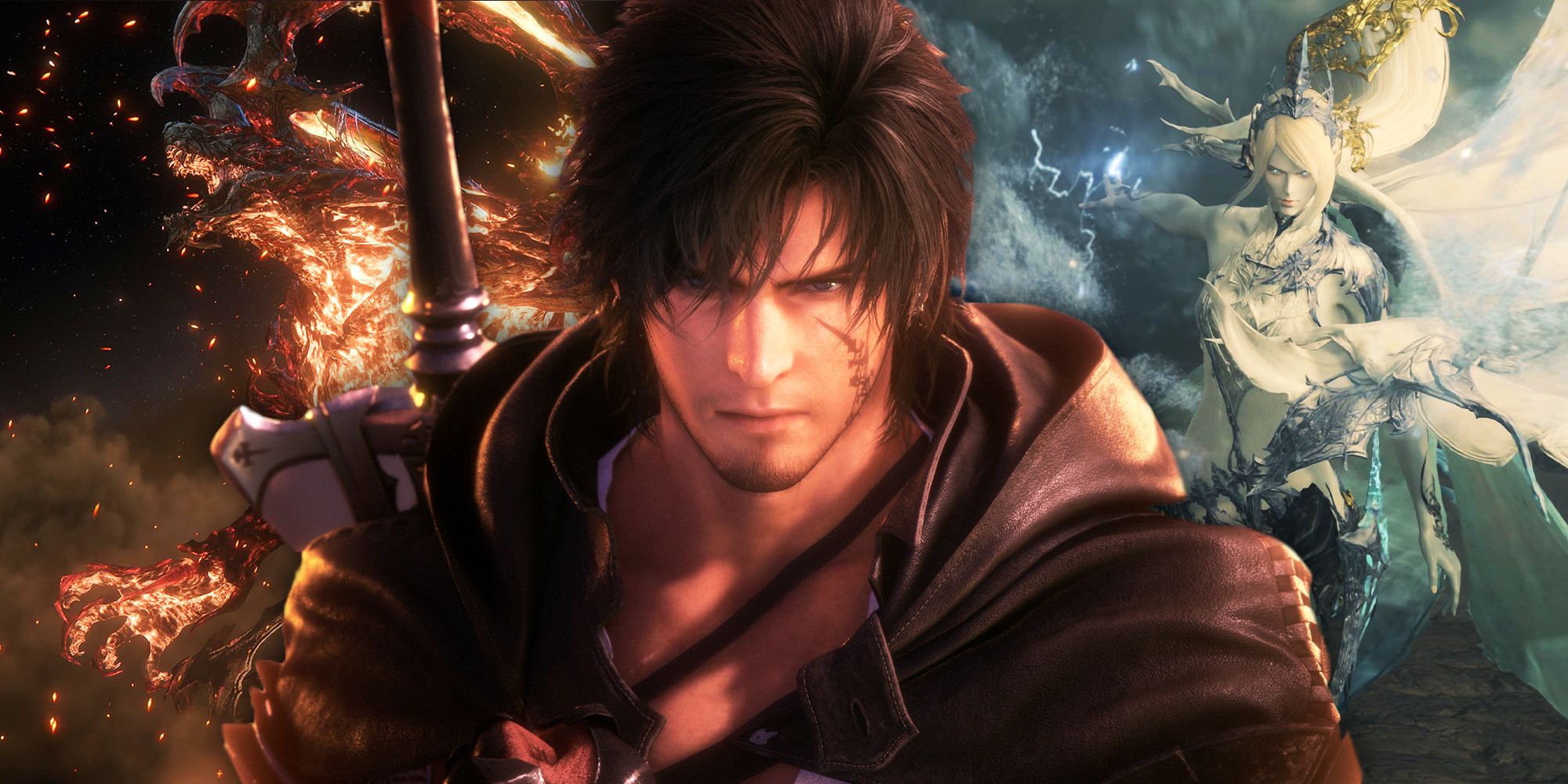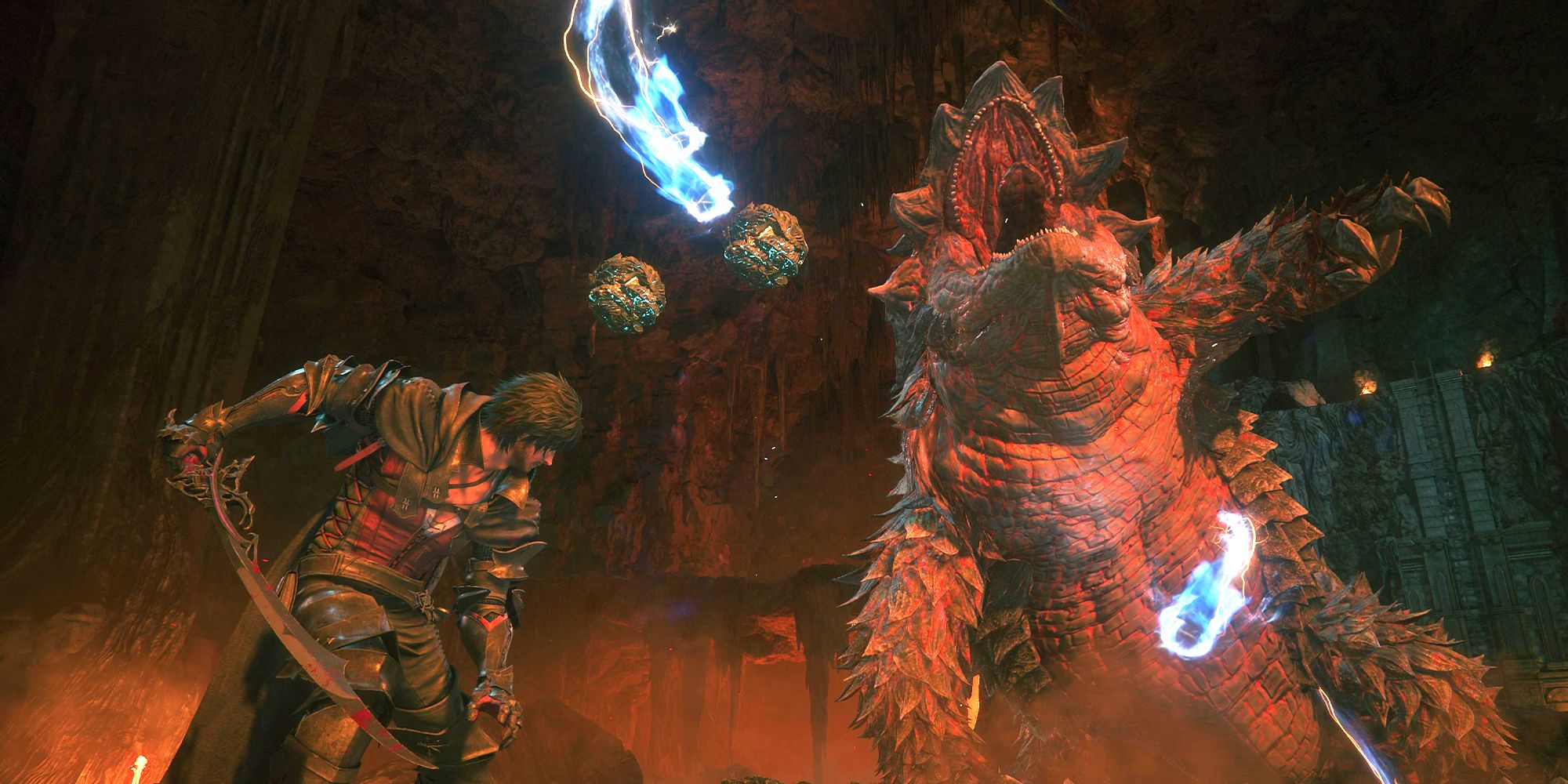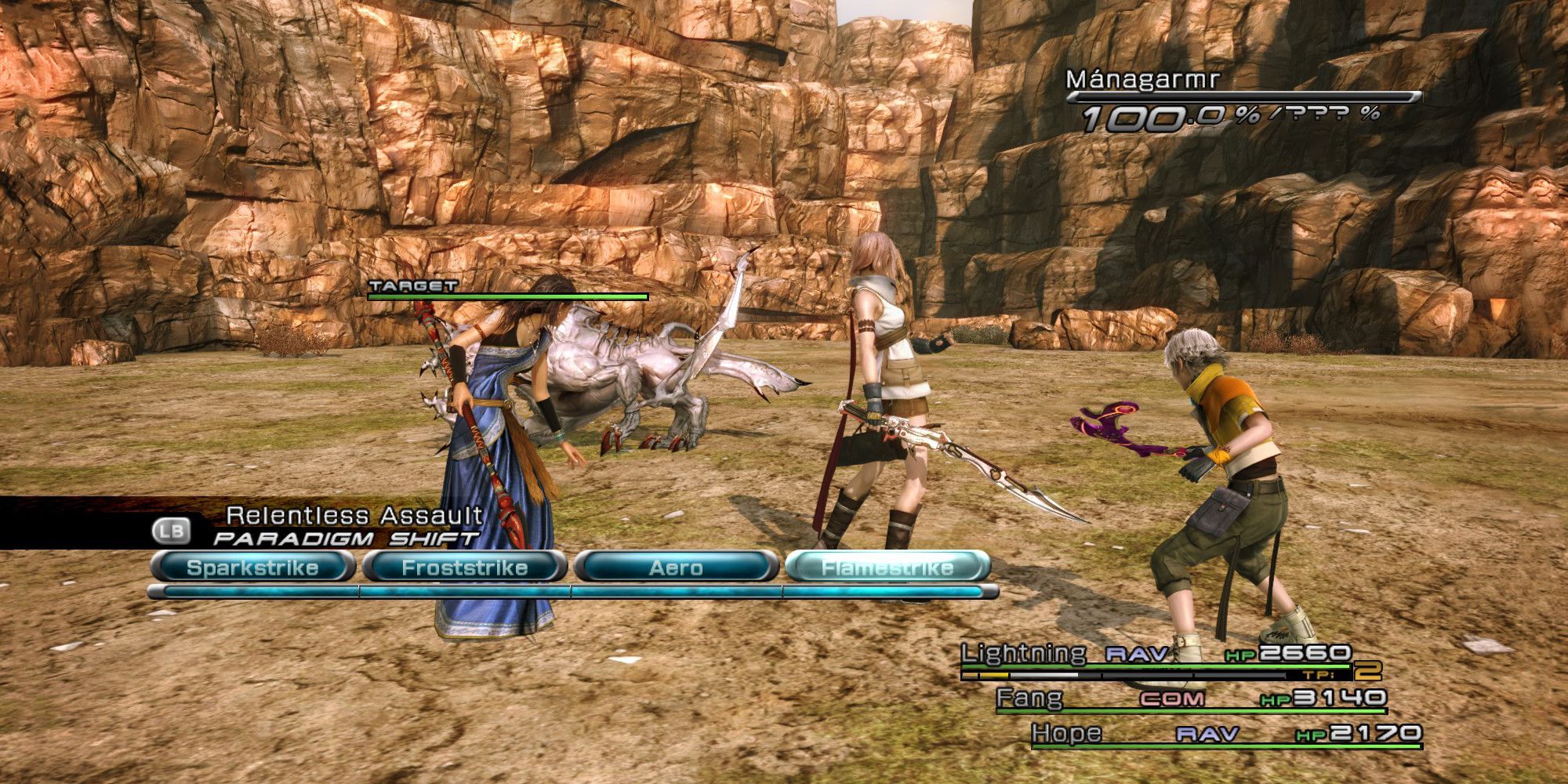Final Fantasy XVI is finally here, and critics are lauding it as the best Final Fantasy in years, many claiming its fresh take on the Final Fantasy formula is exactly what the franchise needed. FFXVI follows Clive Rosfield, the First Shield of Rosaria assigned to the protection of his younger brother, Joshua, the current Dominant of the Phoenix.
Final Fantasy XVI is the first true action RPG of the Final Fantasy series in that it replaces the franchise's traditional turn-based combat mechanics with a combination of real-time action and RPG elements. While change can certainly be a good thing, especially when it comes to video games, a change of this magnitude to such a beloved franchise has served to divide fans and newcomers alike. However, Final Fantasy XVI may be better off as an action RPG, as it is more relevant to modern gaming audiences and breaks through the limitations that plague turn-based RPGs.
Real-time Action Combat is Relevant to Modern Gaming Audiences
While Final Fantasy XVI has received generally favorable reviews, the title hasn't avoided criticism by any means. Some longtime Final Fantasy fans have criticized FFXVI's drastic departure from the formula they are familiar with. Still, many critics have praised Square Enix's decision to modernize the 25-year-old franchise in order to stay relevant and potentially broaden its reach. From a business perspective, this was likely the best move for the franchise given its age as well as current gaming and cultural trends.
In a 2022 issue of Famitsu, later translated by VGC, Final Fantasy producer Naoki Yoshida said of Final Fantasy's traditional turn-based combat, "...for the past decade or so, I’ve seen quite a number of opinions saying ‘I don’t understand the attraction of selecting commands in video games’." He had previously mentioned his love for turn-based RPGs but went on to say, "For several console generations now, all character expressions can be done in real-time... It’s now common for gamers younger than me to love such games."
It seems that Square Enix was forced to make the difficult decision to change its tired turn-based formula in order to appeal to younger audiences, albeit at the cost of potentially losing their longtime fans. It's likely, however, that Final Fantasy XVI's M rating is one feature the developers included in an attempt to maintain their now-mature audiences. Still, it is difficult to deny the reality that Square Enix and its beloved Final Fantasy franchise face moving forward: adapt or risk irrelevance.
Whether this drastic change will turn out in Square Enix's favor remains to be seen, as FFXVI has only just been released. However, the consistently high reviews and scores the title has received thus far are very telling of its overall reception. And while the developers may not have perfected their new formula, it is, at the very least, a solid start to a brand-new direction that the Final Fantasy franchise could benefit from. It's better for the Final Fantasy fanbase to grow and evolve now rather than waiting until the series is on its deathbed.
Turn-based Combat is More Limited Than Real-time Action
Turn-based combat, especially in Final Fantasy, has certainly had its appeal. Players have always leapt at the opportunity to strengthen their characters by exploring each new world in search of enemies to battle who would provide EXP upon their defeat, which could then be used to upgrade stats and unlock new abilities. Unfortunately, this is precisely what ultimately limits turn-based combat from achieving what only real-time action combat can.
Turn-based combat largely relies on a character's stats to trigger certain actions like dodges or evades, a combat ability that most action RPGs now place solely in the hands of the player. For example, if a character had a high Agility stat, they might be more likely to evade incoming attacks, but it would only be by chance. Furthermore, if a turn-based RPG ever allows the player to choose to dodge/evade, that action typically takes up an entire turn, meaning the player is then required to wait until their next turn to attempt a different action like attacking or using an item.
If modern gaming trends have shown anything, it is that many gamers now desire nearly an unlimited amount of control over their gaming experience -- a trend that has led to the development of highly-customizable games like Starfield. Action RPGs give full control of a character to the player, allowing them to evade and then attack in real-time rather than leaving it up to chance or requiring them to wait. Also, since real-time action combat doesn't rely as heavily on a character's stats as turn-based combat does, players are able to face and defeat more challenging enemies without spending a significant amount of their time leveling up and strengthening their characters in preparation.
Despite all but abandoning its traditional formula, Final Fantasy XVI breathes new life into the franchise not just by conforming to new standards in the gaming industry but also by giving its players more immediate control over their experience with real-time action combat. This is a welcome change to the Final Fantasy series, as it strengthens the series' appeal to younger audiences, even if it does beg its longtime fans to adjust along with it. While it may not be the massive leap forward that some players wanted, it is certainly not a step backward. This is the type of change the Final Fantasy franchise has needed for some time now, and the developers would be remiss not to continue its development in the series' subsequent installments.



